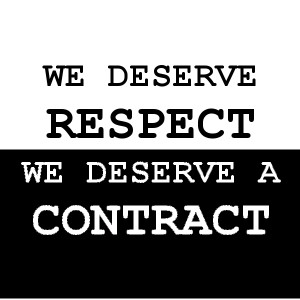Poverty Beats His Children
/After coming across this great article which blows up some of the insidious lies that cripple our debate about our country's social safety-net, I remembered a piece I wrote back in June for my previous blog, and I thought it would be worth republishing here.
Poverty Beats His Children
The other day, a friend of mine voiced the opinion on Facebook that America is the ultimate land of opportunity, and that people who are in poverty are at fault for blaming others for their plight. It was, he argued, a question of perspective. If people are poor, he argued, they should take more responsibility for their circumstances.
My friend isn’t a greedy or hurtful person. Though we haven’t seen each other in almost two decades, based on the pictures of his beautiful, happy family, he strikes me as somebody who has his priorities in order. But this statement got under my skin and has been itching. I’ve been scratching at this for a little over a week now, and I’m not quite sure how to express why this irritates me so much.
Should I begin on purely factual grounds? He states, without evidence, that the United States is one of the foremost countries which provides its people with the ability to raise themselves out of poverty. “Unlike nearly any other country, you can start in poverty and move into the middle or upper income bracket within a few short years...definitely into a generation.” What he’s describing is something economists call "social mobility." It’s measurable. And he’s simply wrong. At best, we rank 4th. When other factors are included, like unemployment, inflation, and respondents’ satisfaction to standard-of-living and employment opportunities, the U.S. comes in 18th. Of the 195 countries our government recognizes, that means we’re not even in the top 5%. That hardly sounds like “unlike nearly any other country” to me.
Or should I challenge his notion that income inequality is irrelevant? He claims that we don’t have “haves” and “have nots”, but “has” and “has more.” This sounds like merely bit of optimistic semantics. It’s all in one’s perspective, he claims. But that’s wrong, too. The distance between the “have nots” and the “has mores” produces real world consequences. According to economists, it impedes growth in a number of ways. It doesn’t take a lot of economics training to imagine why this would be. People who are far down the economic ladder can’t demand higher salaries. Beggars don’t haggle. When they have lower salaries, they can’t buy as many goods. The ultra-wealthy still live very well, thank you, but they store their money in accounts rather than investing in businesses which sell goods to people on the bottom of the income spectrum because that’s a better investment. If you reduce the buying power of the poor, you reduce the selling opportunities for the rich. This leads to less sales, less employment, less of what economists call “churning”: money growing because it’s changing hands in exchange for real goods and services. Widening income inequality makes some people much richer, and creates the illusion of economic growth when the total GDP is divided to become the Per Capita GDP, but in truth the standard of living of the vast majority of people decreases.
But this kind of sunny optimism is worse than just bad economics. In my friend’s defense of his position, he cites Christian scripture, pointing out that people have an obligation to use the talents they’ve been given to achieve success. He cites the parable in Matthew about the bags of gold entrusted to servants, Matthew 25:14-30. This is what an English teacher would call “bad reading.” The passage is clearly not about money, it’s about faith. The master says, quite clearly, “You have been faithful with a few things; I will put you in charge of many things. Come and share your master’s happiness!” If the parable were about money, one would have to imagine that the “things” Jesus is teaching his disciples to take care of are quantities of money. This from a man who told people that they should take all they have and give it to the poor? This from a man who told people to give Caesar his coins back? This from a man who told people that wealth would make it more difficult to get into heaven? This from a man who told people not to store up their treasures on earth? This from a man who, at least according to scripture, was aware that his death was imminent and yet spent more time talking about concern for the poor than any other single topic during the limited time of his ministry? It’s certainly a convenient interpretation to use when one is trying to justify an investment strategy, but it cannot be justified by the text as a whole.
That’s not what bothers me, either, though. I’m not a Christian. If Christians want to pick apart their scripture to justify widening income inequality and callous disregard for the plight of the poor, that’s their business. They can write a new translation which actually includes the phrase “pull yourselves up by your bootstraps,” stick it into the Sermon on the Mount, and shove those words into Jesus’ mouth, and if that’s what they all decide they believe, who am I to argue? I could point out that it’s a very different interpretation of scripture than other Christians have had before, tantamount to a different religion, something earlier Christians would have called a heresy, but they could quite correctly retort that Christianity has changed a lot over the years. Some have learned to read around the misogyny. Most have learned to stop using scripture as a justification for racism and slavery. A growing number are even learning to get around the bigotry towards homosexuals that’s clearly in the text. So if they want to decide that all the commands to care for the poor, to suffer with those who suffer, and to recognize worldy wealth as a threat to their salvation are just cultural relics of a time gone by and scold the poor for having bad attitudes, it is absolutely within their 1st amendment rights to do so, and they can take that up with their god when they get to the end of the road. That’s no longer my business.
Except…
Except I have to live with these people. And not just this particularly venal and callous kind of Christian, but with a greedy and self-defeating kind of American. This kind of attitude has real-world policy implications which harm my country, my community, my family.
No, that’s not it, either. I can abide people I disagree with, even when their beliefs harm me and mine. I can live with people who deny evolution even though their beliefs hurt our country’s international reputation and our scientific competitiveness. I can live with people who have regressive beliefs about immigration even though their selective notions of law enforcement will split up families, hurt our own economy, and ultimately fail to do anything but align them with racists. I can live with people who deny the reality of global climate change even though their intransigence will have dramatic and disastrous effects on the economic, political, and even physical health of their fellow citizens. I can live with people I find to be wrong. Why? Because I am sure I’m wrong about some things, too, and I’m sure the ways I’m wrong will injure others. Of course, I don’t know how I’m wrong. As Wittgenstien pointed out, “If there were a verb meaning ‘to believe falsely,’ it would not have any significant first person, present indicative.” If I’m wrong about something, I can’t know it at the time. But I can assume I am wrong because I know I’ve been wrong before, and because I know that being wrong about some things has always appeared to be an essential characteristic of every other human being with whom I’ve come into contact, including those people who are far smarter and far wiser than I am. I try to surround myself with the kind of people who can tell me how I am wrong, and I’ll bet this post may motivate a few of them. I may not know what god to believe in, but I do believe in people, complete with all their absurdity and outright folly. Sartre said “Hell is other people,” but I think other people are the point of existence. Without them, including all their multifaceted wrong-ness, life would be meaningless. An un-observed tree falling in a forest may or may not make a sound, but a man in a crowd who doesn’t care about any of the people around him makes no difference.
I think my friend doesn’t understand poverty (and again, he is in the company of my middle class friends who climbed out of it themselves). Poverty is an abusive father who beats his children. He stands in the foyer of his house, punching them and kicking them, and they cower in the corner, curled up into tight little balls, trying to protect themselves. Every day his blows rain down on them, but while he beats them, he tells them to get out of his house. Behind him, the door is open. For some, it’s open wide. They are gifted with intelligence, athletic ability, good looks, resilience, perhaps an indomitable will. For others, the door is open just a tiny crack, smaller even than their little bodies. Maybe they are not exceptionally smart or brave or beautiful. Maybe they are afraid to leave the house that at least protects them from the weather. For whatever reason, some of these children remain cowering in the corner, while others make a break for it, scrambling for the door. Some of these escaping children run and don’t look back. “I made it out. Why can’t they? It’s their fault.” Others stay inside all their lives. But here’s the greatest atrocity: We are standing out on the sidewalk, and we can always see into the door, at least a little. We can see Poverty beating down the poor. And, to my amazement, many of us say, “It is their fault. Why don’t they take responsibility for their circumstances? Look at the way their choices keep them inside the house of Poverty?” But we stay out on the sidewalk. I want to ask my friend and anyone else talking about taking personal responsibility for poverty: "Who is supposed to take responsibility for where you stand while the poor suffer? Isn’t that up to you?"

























